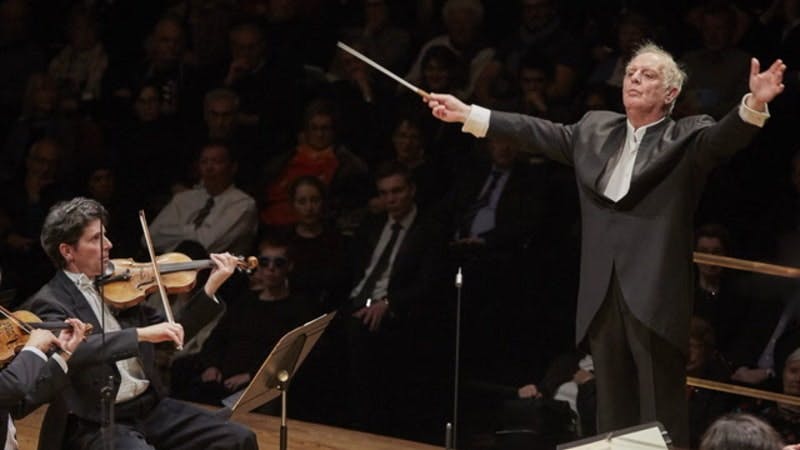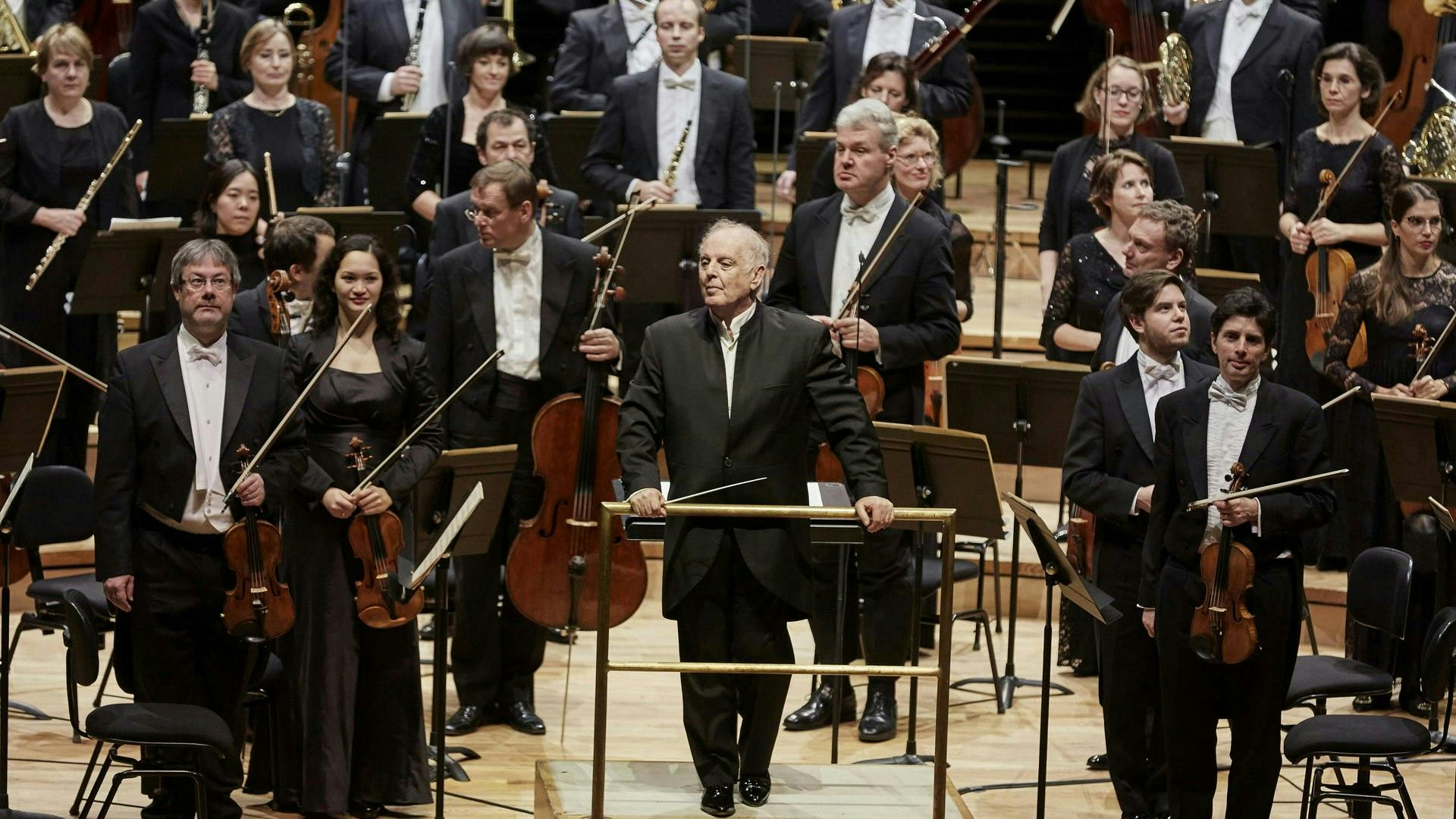
About Bruckner
Over a century after his death, the fact Austrian composer and organist Josef Anton Bruckner’s (1824 - 1896) work continues to move audiences all over the world is a testament to his undying musical sensibilities. One could argue, however, that Bruckner would have preferred to not be described as a genius; unlike other musical radicals such as Richard Wagner and Hugo Wolf, Bruckner genuflected before his peers - particularly Wagner - and was rather critical of his own works, which he tweaked continuously. Hans von Bülow described him as ‘half genius, half simpleton’, and his life-long predisposition to humility would probably lead Bruckner to agree.
Unlike many of his contemporaries, Bruckner was a notably late bloomer, having only composed his major works after turning 39. Still, he was interested in music from an early age; born in Ansfelden, Upper Austria, he was brought up playing violin and organ with his father, the village schoolmaster. When Bruckner was 13, his father died, and he became a young chorister at the monastery-school of St Florian. With no prospects of becoming a musician due to his family’s poverty, Bruckner trained to be a school teacher, which led him to work in Windhaag, Kronstorf, and St Florian once again.
1855 went on to be a pivotal year for Bruckner’s life and career, as it was then, as organist at Linz Cathedral, that the newly-minted musician embarked on a five-year course in harmony and counterpoint with the Viennese pedagogue Simon Sechter. He would later study orchestration under Otto Kitzler who, in 1863, introduced Bruckner to Wagner’s work for the first time. An enormous inspiration was then unlocked - and music history was made.
Shortly after, Bruckner started calling Vienna his home - he later taught at the university there, too. The next three decades saw him grow to be an extremely prolific composer, despite the constant struggle to get his orchestral work performed - particularly after the so-called ‘disastrous’ 1877 premiere of the Third Symphony. It took until his seventh for Bruckner to finally get his flowers, in the work's Leipzig premiere in 1884. And, even, then, ever the perfectionist, Bruckner would continue to tirelessly revise and rework his compositions until his death from heart failure on 11 October 1896. He is buried in the crypt of St Florian, which is, arguably, where he also spawned as a hopeful composer.
Bruckner's work, and his symphonies in particular, remain unmatched in the romantic repertoire world. Musicologist Deryck Cooke perhaps put it best when he said; 'Bruckner's symphonies offer a sense of the awe-inspiring, born of the naked wonder, fear and delight of elemental humanity, confronted by the mysterious beauty and power of nature and the vast riddle of the cosmos'. Clearly, despite his mounting insecurities, Bruckner (who went on the be the influence he sought out for millions, including a certain Gustav Mahler) was and continues to be one of the most significant voices in music of the nineteenth century and beyond.
Discover the music of Anton Bruckner
Concerts featuring A. Bruckner

Available Now
Defying the World
Bruckner's very first symphony is performed here by the Staatskepelle Berlin under the baton of Daniel Barenboim.

Available Now
Elegance & Symmetry
Bruckner channels the divine in his 'Symphony of Pauses', performed here by the incomparable Daniel Barenboim and his Staatskapelle Berlin.

Available Now
Wagnerian Influence
The composer's first major triumph is tackled by Daniel Barenboim and the Staatskapelle Berlin from the lavish Philharmonie de Paris.

Available Now
The Romantic
Daniel Barenboim launches into his Herculean cycle of Anton Bruckner's mature symphonies with the Staatskapelle Berlin, starting with the Fourth.

Available Now
Toward New Brilliance
Acclaimed baritone Thomas Hampson joins Christian Thielemann and the Staatskapelle Dresden as part of their Bruckner cycle.
Choose your subscription plan
Frequently Asked
Questions
What is Symphony.live?
Symphony.live is a video streaming platform committed to uniting the world’s orchestras. We believe in demystifying the wonderful world of classical music, striving to make it more approachable for diverse audiences through innovative viewing experiences. Our growing family of orchestras and their stories are at the forefront of everything we do. We curate a diverse array of concerts, playlists, in-depth explorations, and more. Our family of orchestras includes The Cleveland Orchestra, Budapest Festival Orchestra, Czech Philharmonic, Tonhalle-Orchester Zürich, Orchestre symphonique de Montréal, and others. This is your chance to get closer than ever to the music you love!
How does the free trial work?
For a 7-day free trial, curious users can try Symphony.live for free. During these 7 days, you can enjoy all of our content in full - and with no strings attached. During the trial period, it’s up to you to decide whether you want to join us or not, so feel free to cancel at any time. There are two types of subscriptions we offer: monthly ($6,99/month) and annual ($49,99/year).
Note: prices may vary per country.
How/where can I watch Symphony.live?
With Symphony.live, you can watch anywhere, anytime. As well as accessing online through Symphony.live, you can take your favorite concert experiences with you wherever you go, thanks to our mobile apps for iOS and Android.
You can also watch directly on your television via Roku, Android TV, Google TV, Apple TV, Amazon FireTV, and on recent Samsung and LG TV sets.
Currently, we are available in the following locations:
(Europe:) Austria, Belgium, Czech Republic, Denmark, Finland, France, Germany, Greece, Hungary, Iceland, Ireland, Netherlands, Norway, Portugal, Spain, Sweden, Switzerland, United Kingdom;
(Americas:) Brazil, Canada, Mexico, United States of America;
(Asia-Pacific:) Australia, Japan, New Zealand, Singapore, South Korea;
Note: more platforms and regions will be added soon.
What content does Symphony.live offer?
We would like to think there is something for everyone at Symphony.live. Whether you're a history buff looking to explore some of history's greatest musical minds, a connoisseur of the concert hall looking for your favorite performance, or simply looking to throw some relaxing classical music on in the background while you work, we’ve got you covered. From exclusive concert performances to deep-dive documentaries and our very own Close Up series, we ensure the classical music fan never runs out of content to watch. Plus, our hard-working team of experts regularly curates hand-picked playlists for every mood you won’t find anywhere else. Whether you’re in the mood for Vivaldi or Zimmer, you will never get bored; we are constantly revamping our collection with new music!
What quality does Symphony.live offer?
We understand the importance of experiencing classical music in mint condition. To help with your immersive experience, we always strive to provide you with the highest quality possible. We also have a selection of 5.1 digital surround sound available. Moreover, through our Wolfgang collaboration, select concert videos come with captions, enriching your viewing experience by providing a deeper understanding of the beautiful music on your screen.
How many devices can stream simultaneously?
You can stream Symphony.live on two devices simultaneously.
How can I cancel?
You can cancel at any time, directly from your profile page on the Symphony.live website.
How can I contact Symphony.live if I need account support and/or troubleshooting?
If you need support about your account, billing details, or encounter problems, please go to our help & support section or send a mail to support@symphony.live
How do I access the Member Benefits?
To acces the Member Benefits you need to have an active subscription with Symphony.live. You can activate your account here.
Please follow these steps:
-
When you are a memner go to the login page on a browser on your desktop, laptop, tablet or phone: https://symphony.live/sign-in
-
Login to Symphony.live with your account credentials
-
The Member Benefits page is not available on our Apps so you need to head back to our member benefits page on the public website using this url: https://symphony.live/member-benefits
-
Look for the desired deal, copy the coupon code and use the button to go to the landingpage
-
From there you can activate the coupon code in the offered webshop or registration.
If you have any question please contact our support team.